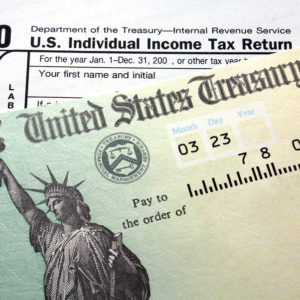Over the last week or two advocacy groups have been pushing a narrative that the debt collection industry seeks to target stimulus fund checks recently issued by the government.
It alleges, “Debt collectors are eager to garnish these payments — threatening families’ access to food, shelter, and medicine, and endangering public health.”
As the CEO of ACA International, the Association of Credit and Collection Professionals and Hunter Warfield Collections, which represents 2,500 members including credit grantors, third-party collection agencies, asset buyers, attorneys and vendor affiliates in an industry that employs more than 230,000 people worldwide, I can tell you this couldn’t be further from the truth.
During this difficult time, ACA members remain committed to assisting consumers. In fact, the collections industry is experiencing an unprecedented number of inbound calls from consumers seeking their help in resolving debts, while the vast majority of those employed who receive the check may see it as an opportunity to get their financial matters in order.
ACA members have hardship programs in place for the very purpose of helping guide consumers through unexpected financial challenges. These programs can include options such as deferring payments, receiving financial assistance, or even halting collections for those directly affected by COVID-19.
This commitment has been further demonstrated across the industry through industrywide calls to action for compassion and empathy during the outbreak, while small and large businesses and medical providers continue to rely on the industry to keep their doors open and their employees paid.
The misleading claim that the debt collection industry is targeting stimulus funds and wants to harm consumers is woefully inaccurate and shows a clear misunderstanding of the garnishment process and the work of the industry in general.
Most alarming, it creates a harmful and unwarranted concern for consumers that banks and the debt collection industry are specifically targeting these funds, which could reverse the positive recent trend of decreasing the number of unbanked consumers during this time of financial uncertainty for the country.
Worse, it creates unwarranted fears that licensed and legal entities complying with a myriad of consumer protection laws are targeting consumers, which could encourage them to turn to less regulated options for disbursement of their funds.
With scammers and fraudsters targeting these funds at this very moment, it is even more concerning that consumers are being inundated with misinformation about this issue.
Alternative to the suggestion that the debt collection industry is eager to garnish stimulus funds, the reality is professional debt collectors would not know the character of funds in a consumer’s bank account or the source of the funds. They could not and would not be specifically targeting them.
In fact, only financial institutions would know the source and character of deposited funds, and notably non-electronic deposits may be more difficult to identify, even for financial institutions.
As a practical matter, it is also worth noting that many courts throughout the country are currently closed and therefore new judgments are minimal at this time. As such, the chance of funds from a stimulus check being subject to a new proceeding or being garnished as a result of a new action taken by the debt collection industry would be extremely rare.
This is why Congress, in its thoughtful determination of who should receive public money and under what circumstances in the Coronavirus Aid, Relief, and Economic Security Act, likely did not identify this as an issue requiring additional legislative attention.
It is very unlikely to be a widespread practice and any problems for consumers that could arise would be more easily solved through a conversation rather than through legislation.
In the rare event that stimulus funds are garnished, consumers have ample opportunity to have those funds returned and two-way communication is critical to resolving those issues.
Unfortunately, the same advocacy organizations that are expressing inflated concerns about the debt-collection industry allegedly targeting stimulus funds are also seeking to limit communication with consumers during this time.
Consumers often need the information that ACA members provide to maintain their financial health, and open communication can often lead to the most favorable outcome for them. Increased communication gives consumers more choices to make their own decisions and options for resolving financial matters.
During this time when Americans are facing so many obstacles, it is unfortunate that the debt collection industry’s role in ensuring that consumers can continue to access credit and services, and in the economy and businesses throughout the country remaining open is being eclipsed by false information.
The Department of Treasury acknowledged in its report “A Financial System That Creates Economic Opportunities Nonbank Financials, Fintech, and Innovation” that, “Debt collectors and debt buyers play an important role in minimizing losses in consumer credit markets, thereby allowing for increased availability of and lower priced credit to consumers.”
The concerns that the debt collection industry is targeting stimulus funds are uninformed and seek to solve a nearly nonexistent problem. Worse, focusing on this when there are so many other problems plaguing the country could harm the very consumers certain advocacy groups claim to seek to protect.
Instead, they could be encouraging consumers to remove funds from highly regulated financial institution accounts where in many cases there has been a willingness throughout this crisis to work with consumers to accommodate individual financial challenges.

